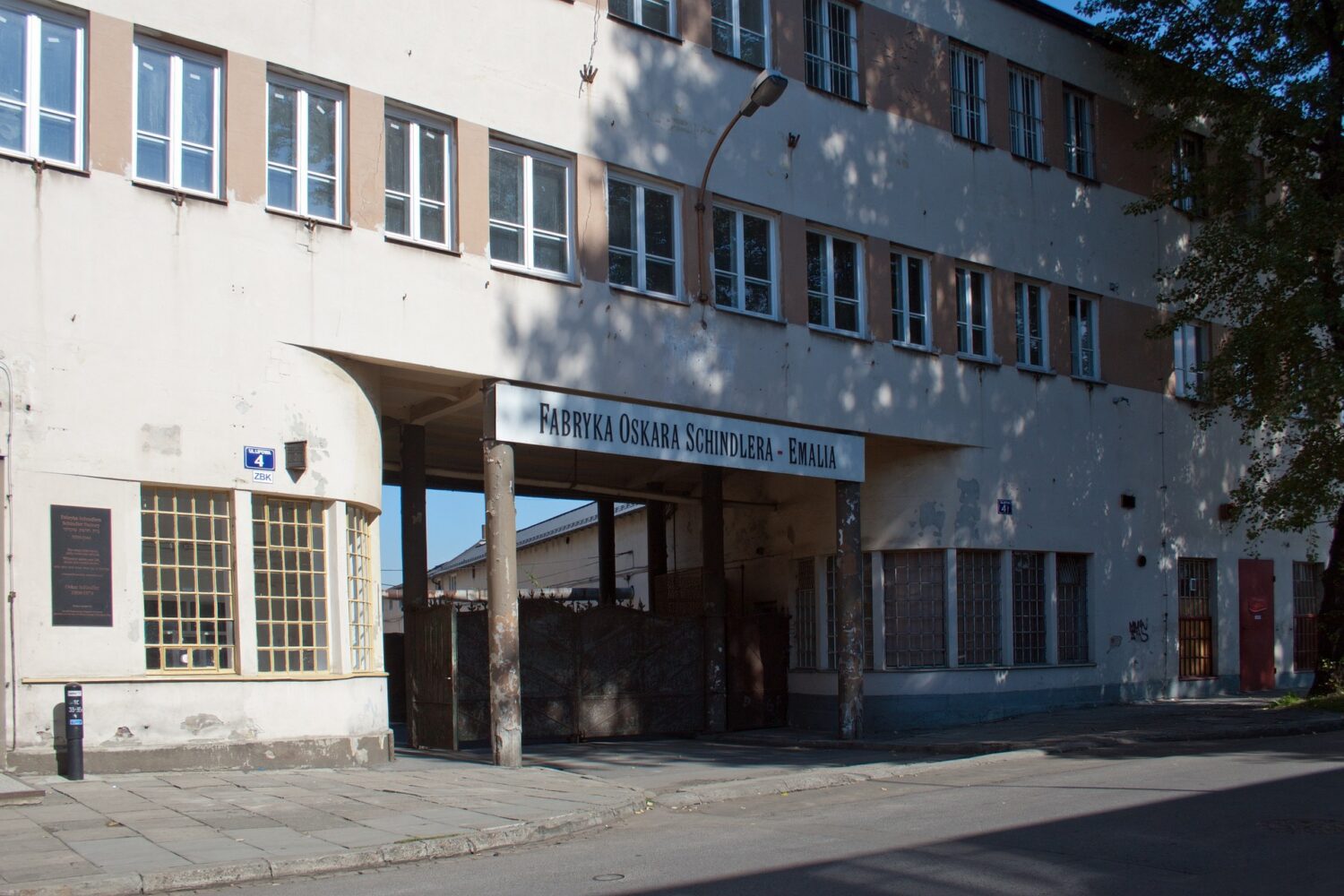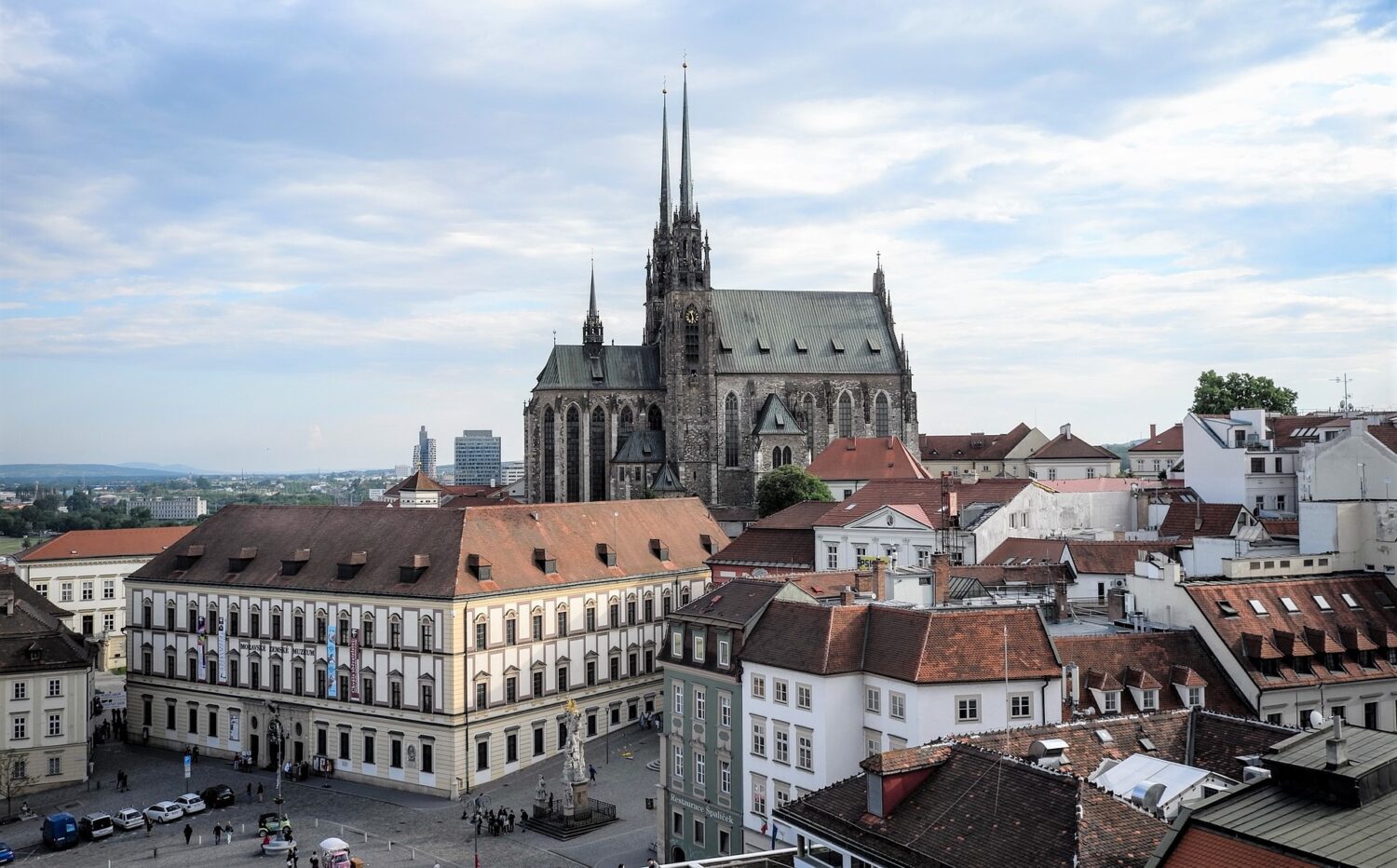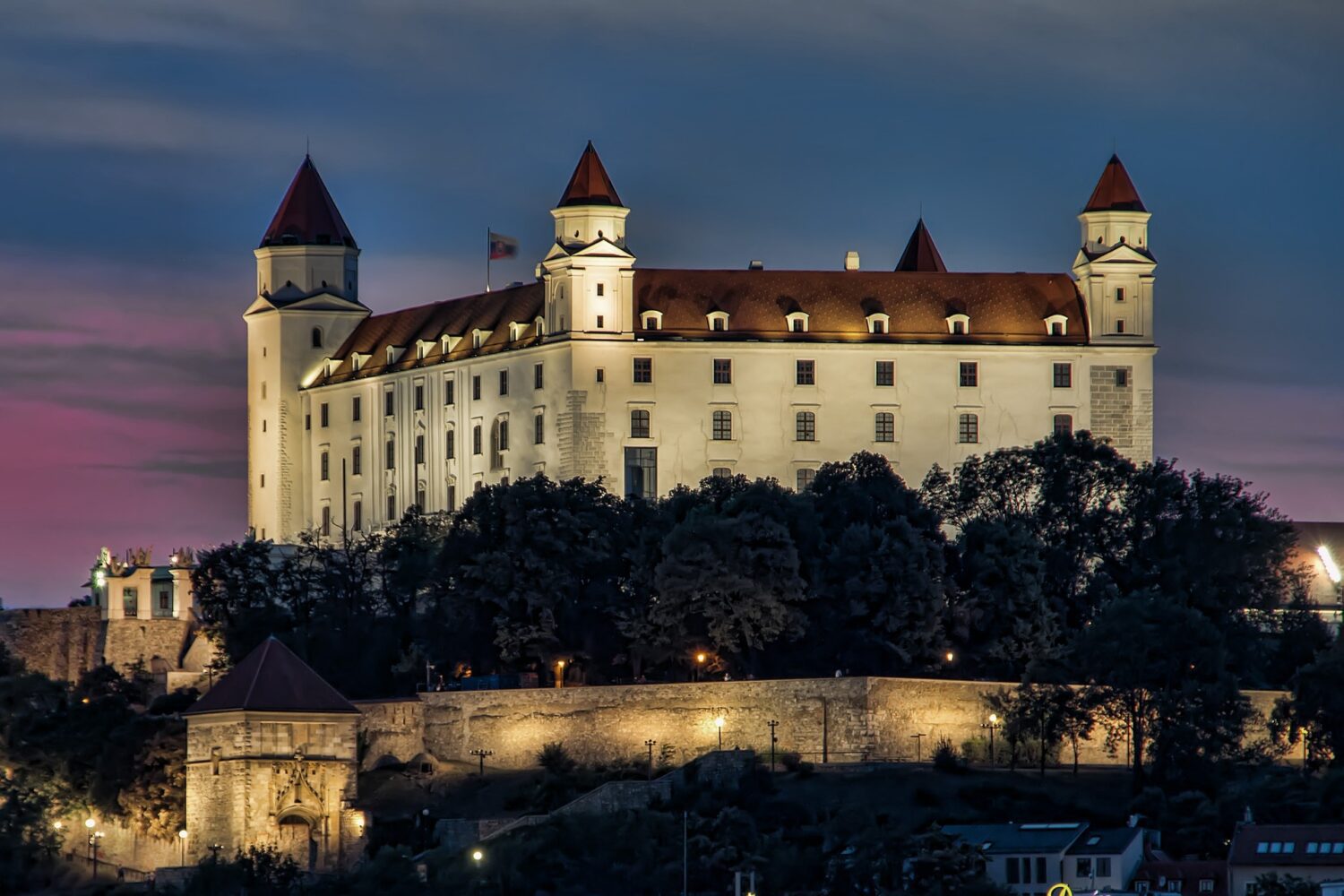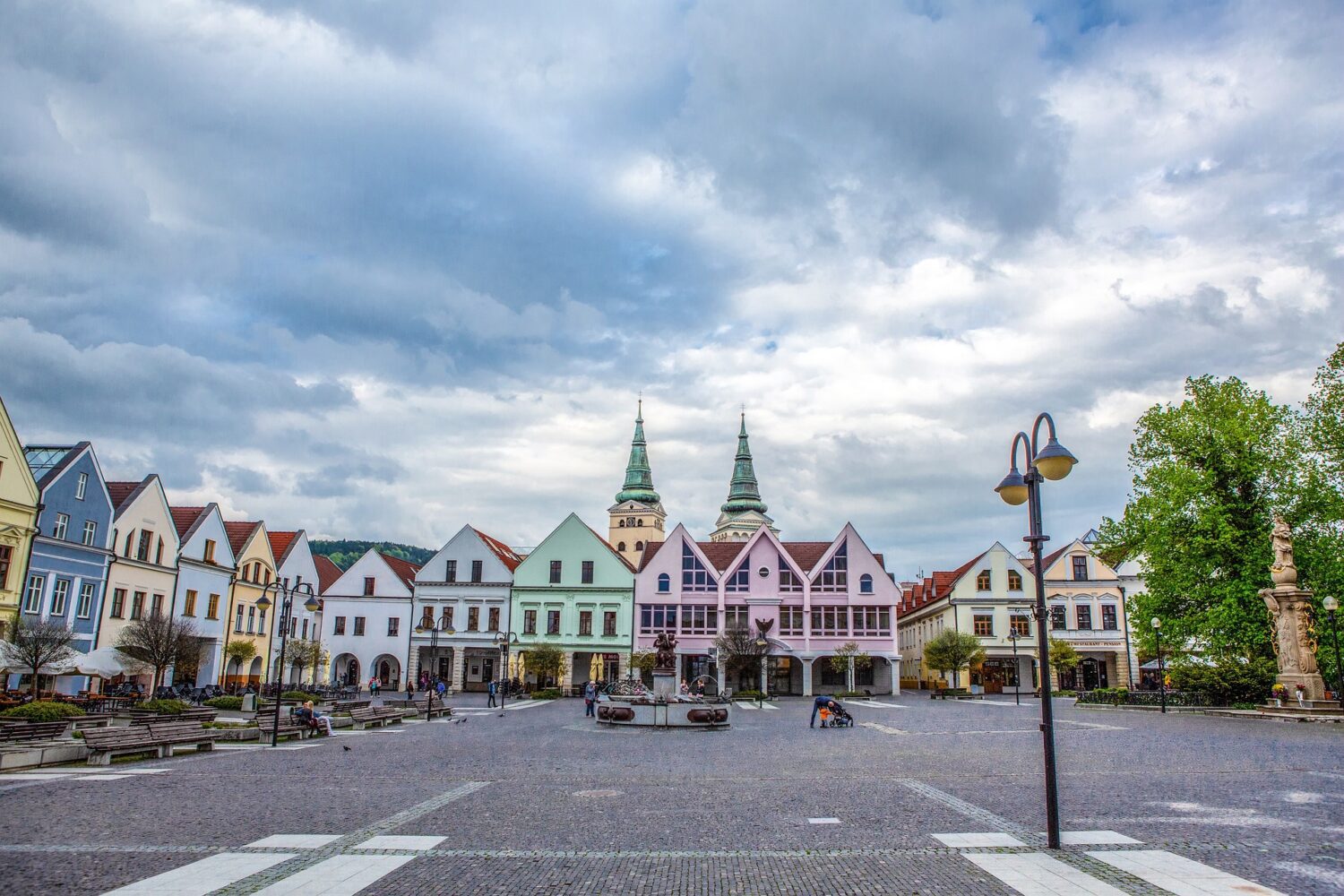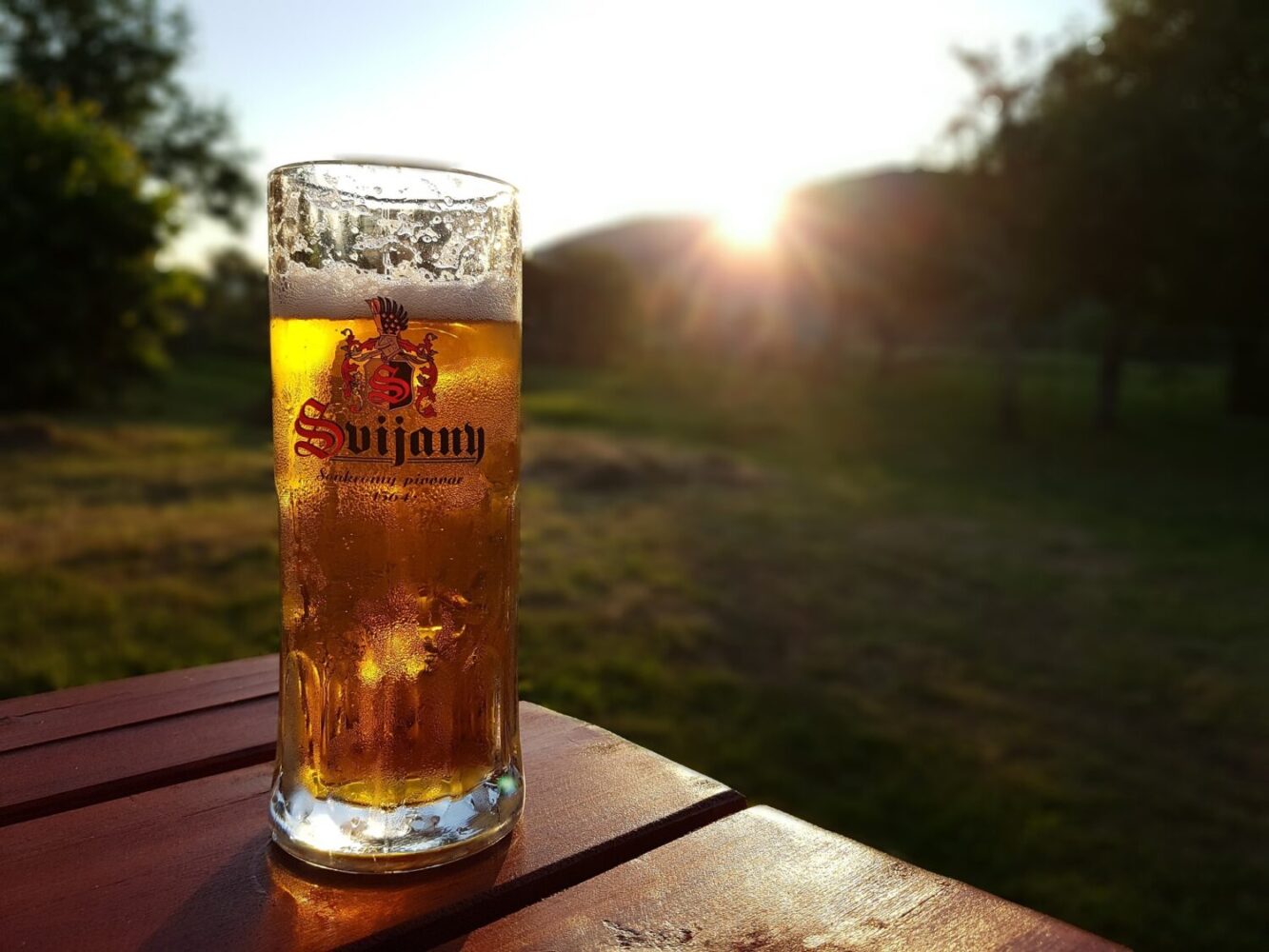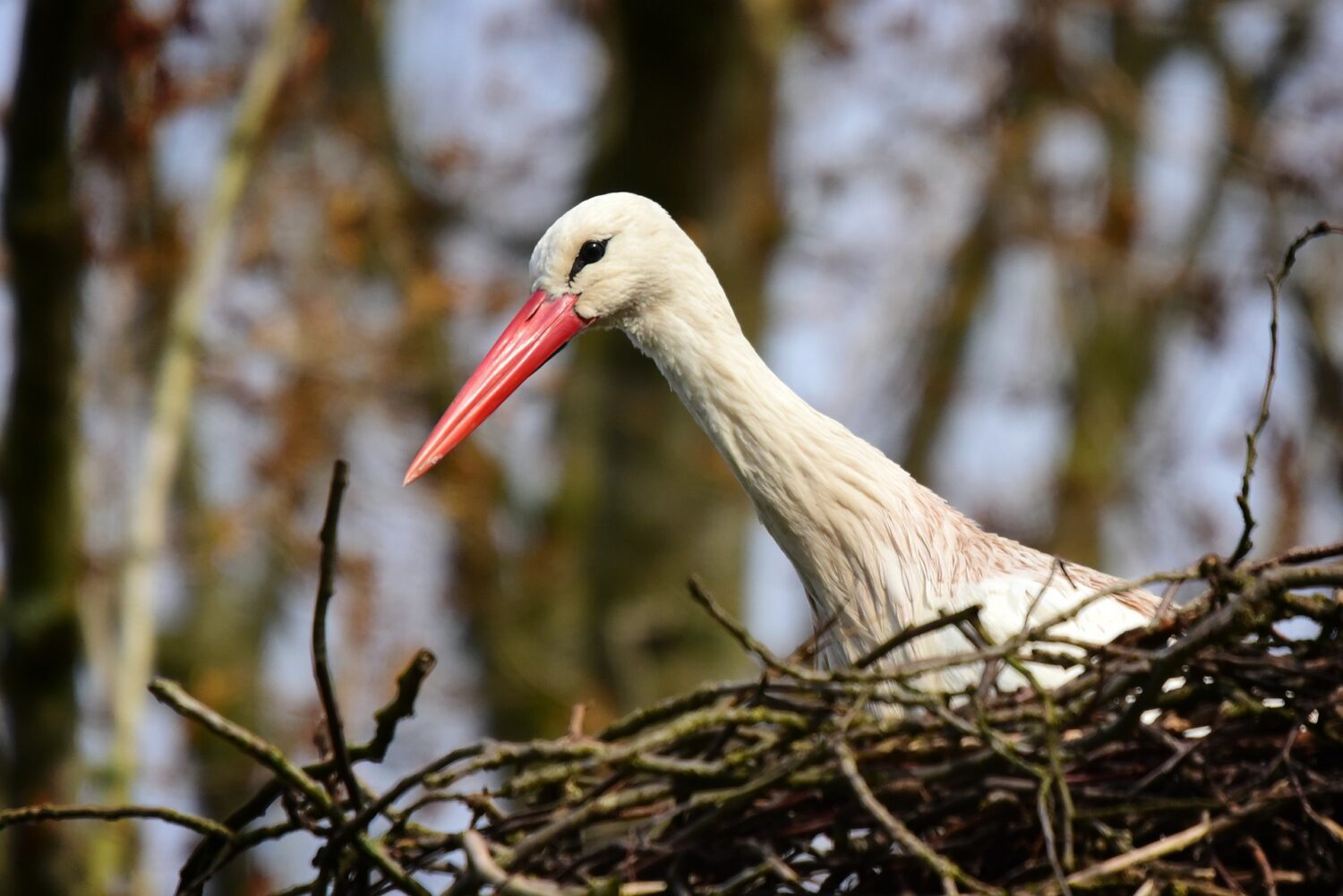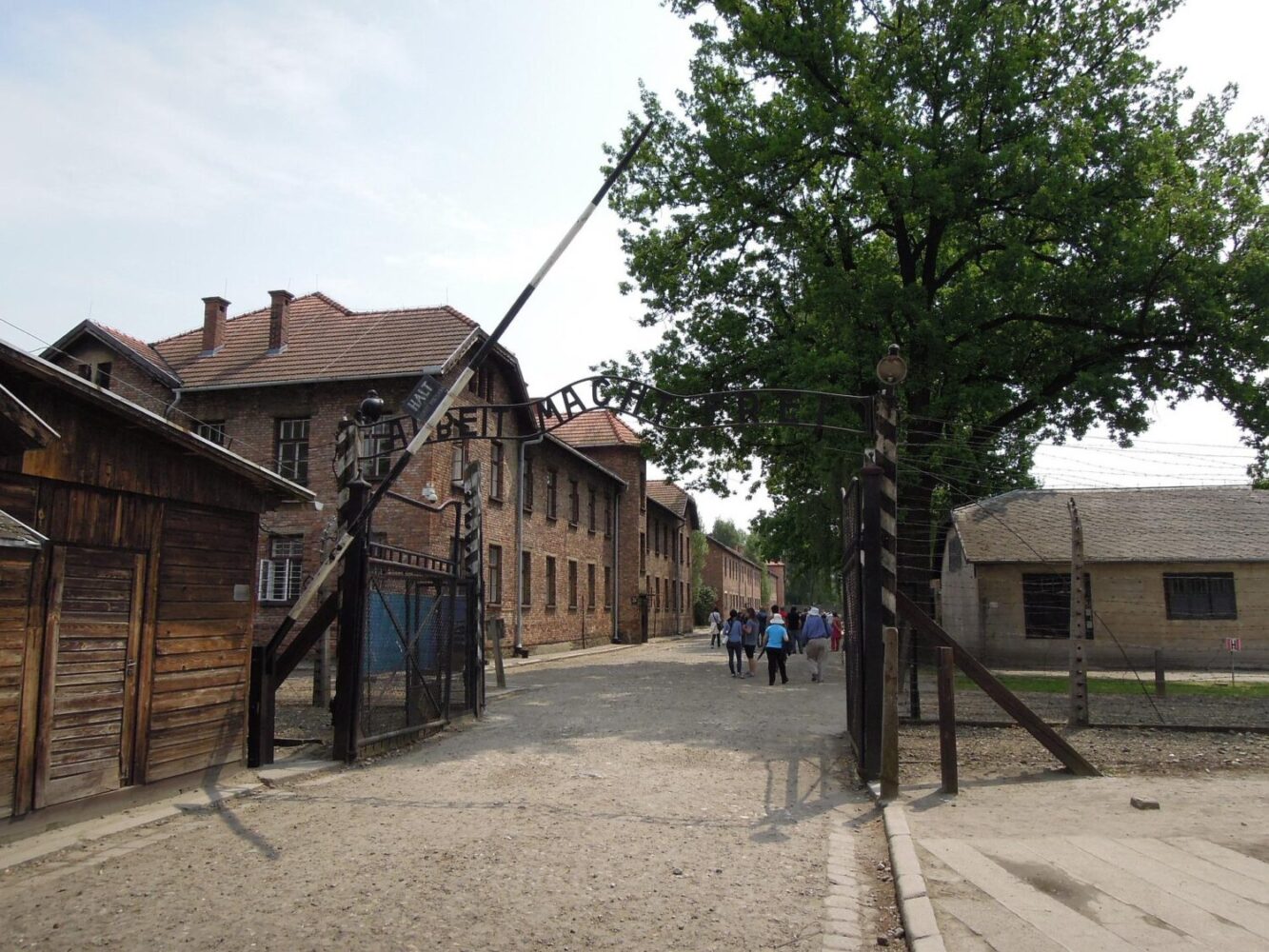Chapter 5 – Levoco, Jeepsies & fat-spattered trainers
This post is part of a series of posts following the adventures of a man on a mission to explore 20 countries around Europe on a motorcycle – go to One for the road.
Chapter 5
We cross the border into Slovakia, riding through a rich area of huge modern villas, neat and tidy old prosperous farms with ancient tractors in yards and glossy horses in fields, and many pokoj for rent in a landscape of hills and woods of many greens beneath a sky which is wide and blue.
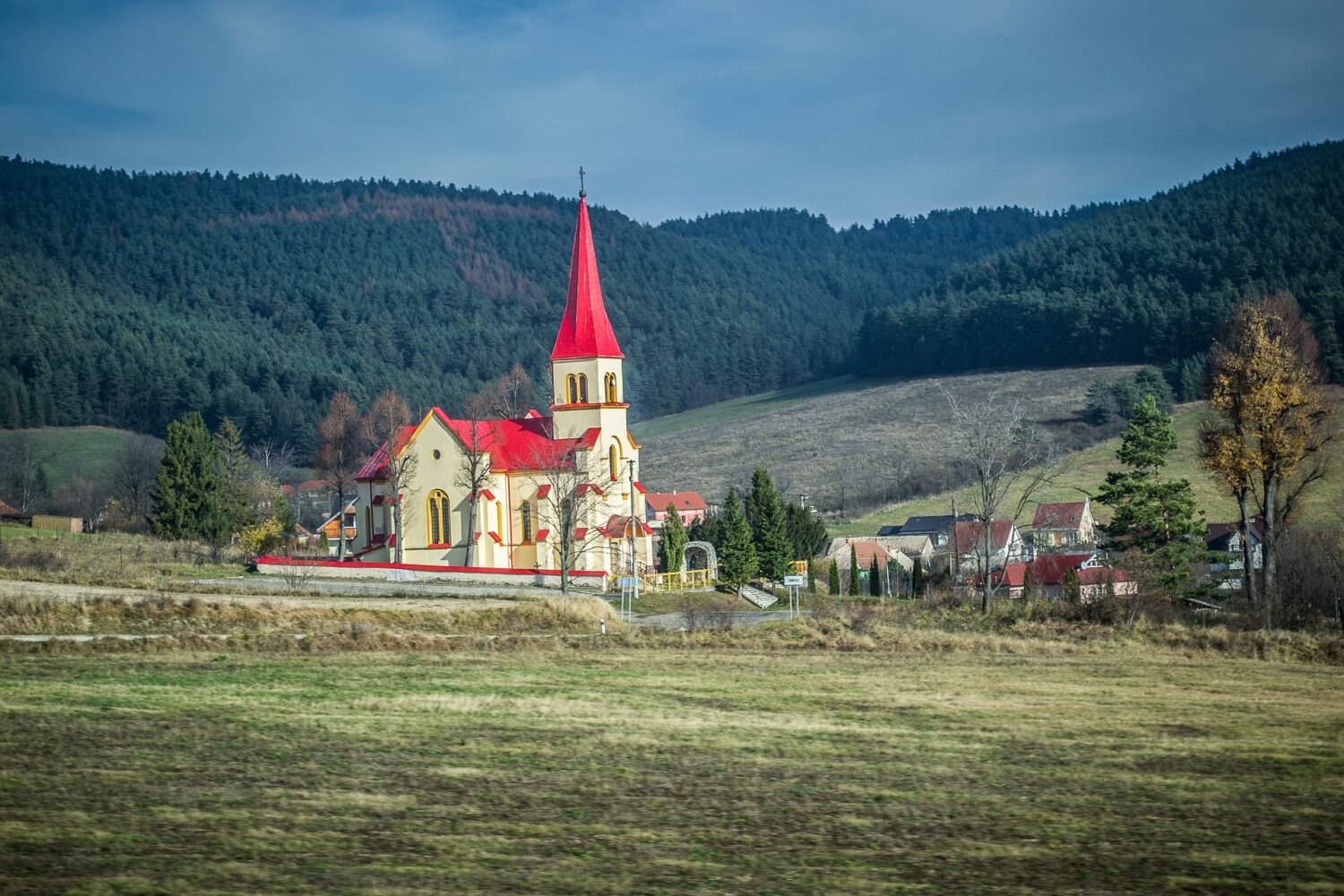
Shanty village
We pass through a small town where I see my first gypsies, walking along the dusty verge, very dark skinned, with moustaches, brawny arms and laden with big blue IKEA bags. Then I see where they were walking to: on the very edge of town, just after a huge sign informing motorists that the next branch of Tescos is 64km away, there is a little shanty village of ramshackle huts and lean-toes and decrepit dwellings surrounded by patches of beaten yellow dirt. Dogs wander aimlessly and in a large open area an old man sits alone in a wheelchair.
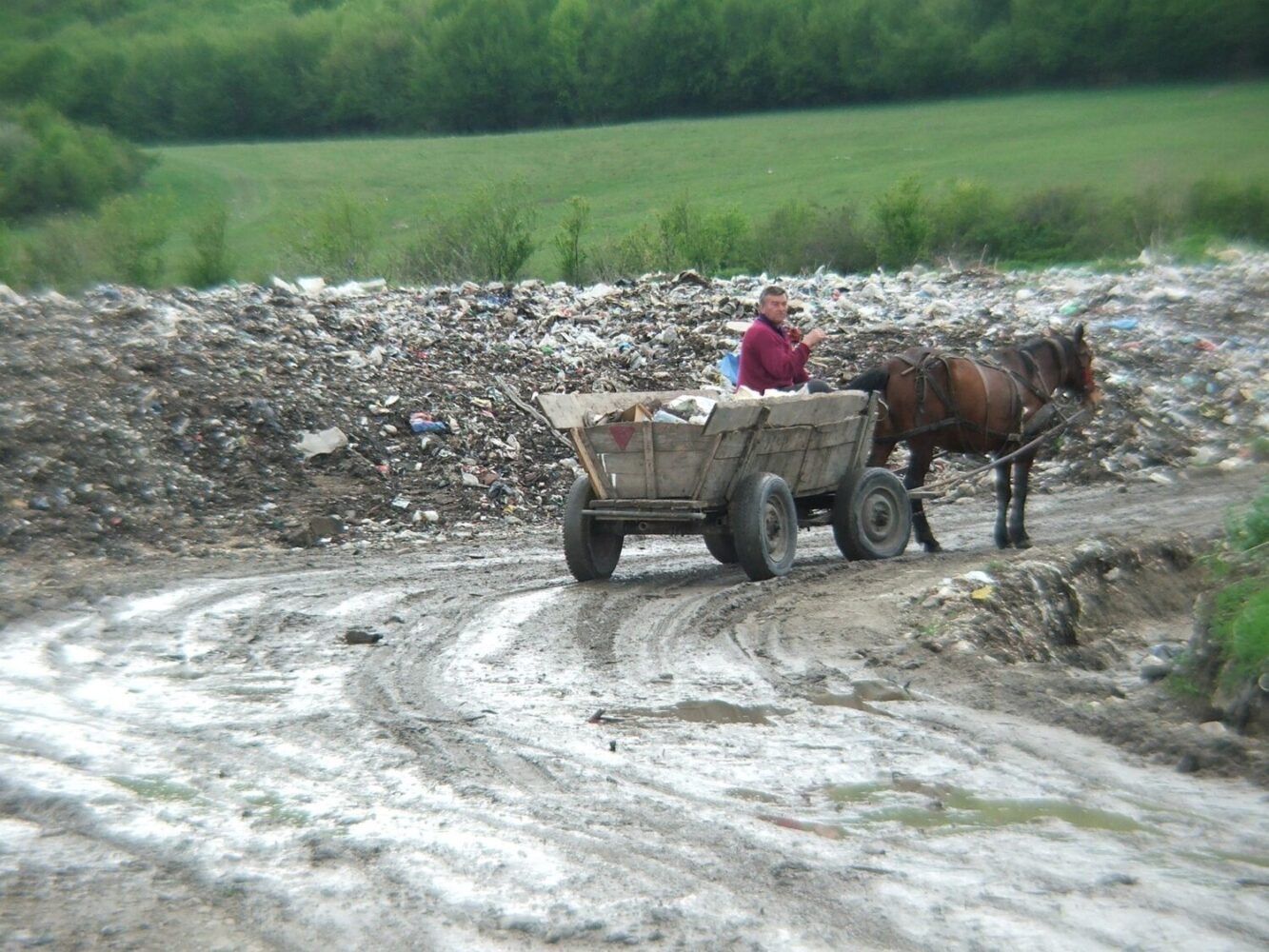
Levoca
Seeing a sign for somewhere called Levoca, I swing left off the highway; it’s early but the sign has a kind of castle-thingy logo, so it’s probably pretty. Sure enough, I bump through a pretty arched gateway in some ancient-looking town walls, trickle through pretty streets until I find a cheap hotel, where for £30 I can dump all the kit in a spotless, airy, modern room, with bath and shower, air-conditioned, satellite TV, tea and coffee-making facilities and a double bed, and then, on the insistence of the owner, park the bike in the locked garden.
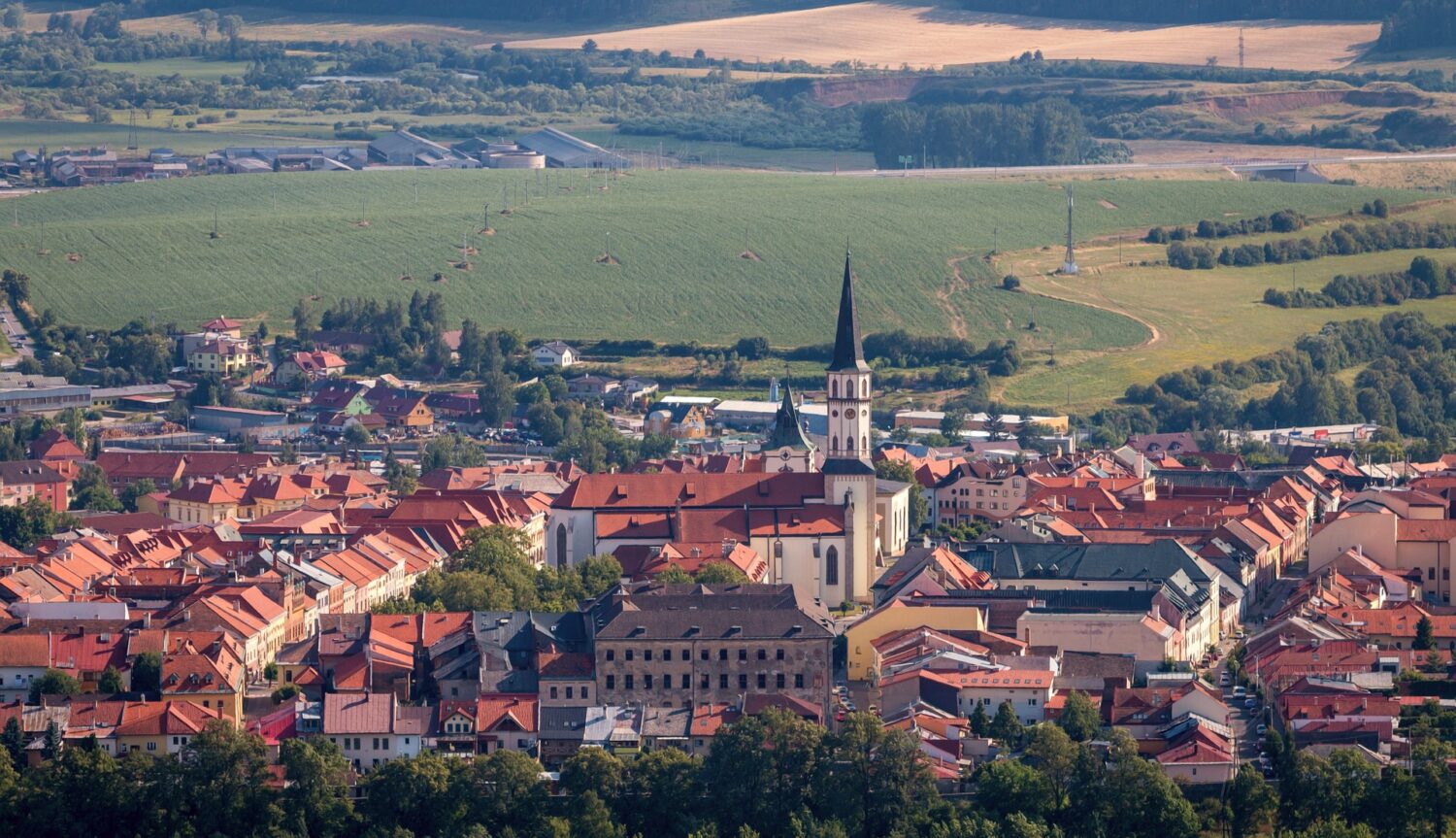
The sun, swallowed by the high white sheet that has been drawing across the sky from the west since I left Zakopane, has gone in by the time I hit the pavement with the camera. I walk around the near-empty streets, but every shot I choose contains at least one traffic sign, a Landcruiser or Mercedes M Class from Austria, and a trio of local teenagers dressed entirely in the ubiquitous brightly-coloured nylon sports kit, the boys staring at me and the girls arm in arm, giggling. I wonder what to do; it’s a bit early to start drinking, or have supper, but the town has a deserted feel about it. I’d guess it positively buzzes as a happening destination in season, but possibly not alone on a fairly chilly pre-season afternoon, with the sun a haloed white disc in a white sky making for very flat light for photography, and a strong wind lifting all the dust.
Mini-Krakow
But considering I turned off the highway on a whim, I’ve chosen well. Lewoca is a kind of mini Krakow, with a beautifully preserved and maintained main square which contains a number of striking buildings which during the late Middle Ages were the residences of the local nobility, which have since been turned into shops, but since they haven’t demolished the fronts and installed vast plate glass windows plastered with adverts for cheap spectacles and mortgages and charity shops, it’s difficult to tell.
Jeepsies
I try one; it is a classic grocery store. The next sells wool, rolls of material and cloth and other sewing materials. Another has an i on a small blue sign outside, so I go inside for information and find that it’s an internet café. The young owner speaks very good English, which he uses to let me know while I’m waiting for a connection that he’s very worried about the gypsies, he would never go to Romania because of them, and that they would ruin any Eastern European itinerary.
Gypsies, he says, are a problem.
“Why?” I ask. “What do they do?”
Nothing, he says, misunderstanding me. “They do not work, can not work, and do not want to work. They are not a big problem here, in Slovakia, but to the east, they are more aggressive. Many problems.”
“How many live here in Levoca?”
He considers for a moment. “Maybe a hundred and fifty.”
“But there’s no problem?”
“Jeepsies are always a problem. You’ll see.”
“Hey!” says the young man sitting at the next console, looking annoyed. “Do you sell headphones for all this noise?”
Main buildings
Out in the main square, I stand and look around. The grass here is a rich green; the sun dapples through the new leaves of the many trees, beneath which townsfolk gradually arrive to sit on benches and chat and idle, and beyond which the three main buildings can be noted: the magnificent Old Town Hall (15th-17th century) and museum, with its frescos high on its wall; the Evangelical Lutheran Church (1837), and the 14th century Roman Catholic Church of St. James, which is currently being re-roofed and contains a beautifully carved and painted wooden Gothic altar, at a sixty feet high the largest in Europe.
Having been three minutes too late for the museum, I try to get in to see this, but arrive at the iron gate of the church just as it clangs shut. “Hello!” a tall, distinguished lady I haven’t noticed calls out to the woman walking rapidly away into the shadows within. The woman keeps going. The lady turns to her husband and shrugs. He produces a tourist map of the town, and they stride off, and after a moment I follow.
Hungary
On a low pedestal of stone set outside the Town Hall is a large wrought iron cage from the 17th century, and the notice explains how ‘miscreants’ were locked in here for periods of public humiliation. For eight hundred years, right up until 1918, this area was part of Hungary, during which time Levoca underwent 23 name changes, including six in 1786 alone (Lewoče, Lőcse, Leutschau, Leuchovia, Leutschovia, Leutsaria), and another four in 1808, though in fact most people here were German. Granted the status of royal town in 1317, and sited conveniently on an intersection of trade routes, Levoca went on to enjoy centuries of successfully exporting iron, copper, furs, leather, corn, and wine, while developing as a noted cultural centre.
Satellite dishes
Although Levoca was largely destroyed twice during the Middle Ages, a respectable number of ancient buildings escaped, to blend nicely with the Renaissance town that emerged. Many of these buildings, which their smart gardens, double garages, window boxes and big clean windows, neat stacks of firewood, have walls that have never been finished. The red hollow brick construction, whose pointing and finish wouldn’t be out of place in a poor Indian village in the Colombian jungle, have been left exposed. Having spent God knows how much building the place, you’d think the owners would spend a few more korunas and get Boris the Builder to whack some rendering over the walls. Satellite television dishes, of course, are everywhere.
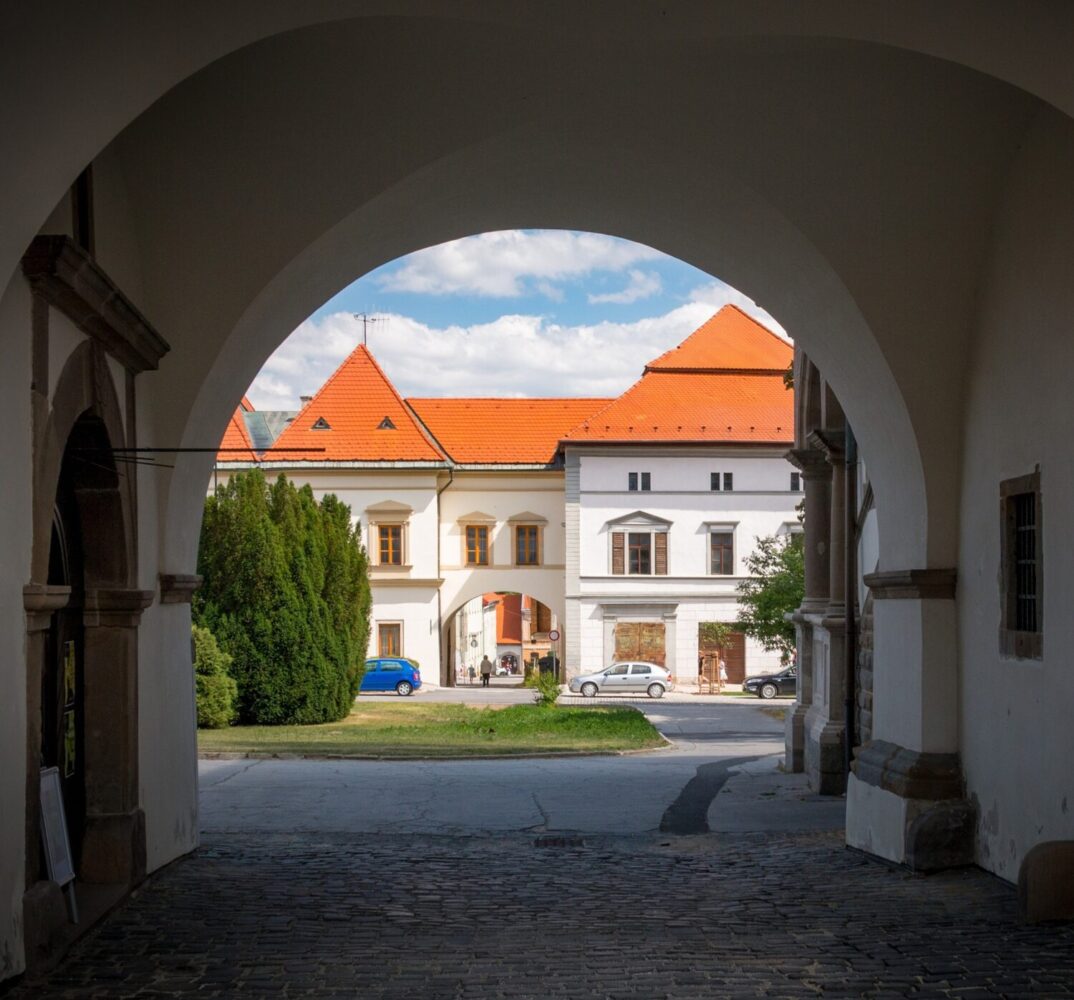
Spotless
I wondered what it was, apart from the sun through the new leaves of the trees that kept catching my eye. Now I noticed what it was: a complete absence of litter. No chewing gum, no cigarette cartons or blowing crisp packets. The square grass was a spotless lawn, and the granite pavement was equally spotless.
Pope John Paul II
Nearly all of the ancient walls survive, and I see that the gateway I bumped through earlier was the monumental 15th century Kosice Gate. From a vantage point looking north, the full scale of how picturesquely sited the town is revealed. To the north, a kilometre or so out of town, at the end of a long, tree-lined road, a church sits atop the traditional pilgrim site of Marianska Hill, where in 1995 Pope John Paul II celebrated Mass.
As I look out, the church actually disappears as the cloud finally comes to earth, and a few seconds later it begins to rain, a steady wet rain that carries a powerful argument for an early supper. I had thought of further exploring the town in search of a good restaurant, but when I return to the square, I find lurking in doorways away from the rain groups of swarthy people, peering out. Some are clearly of Indian origin, others merely sun-burned from years of outdoor work, but all wear either only the bleached denim or vivid sports clothes so common here, particularly among the men.
The men, when I do glance at them, are already looking at me: no downcast eyes of the oppressed here, but the direct, challenging start of the angry. Yet I can’t see a way out for them. They themselves generally seem to be uninterested in education.
I pass a sign saying EURO PUB. BEER/DRINKS, but I decide that I might as well go back to the hotel, where I stand waiting at the bar for a while before a movement catches my eye. I look down, and see that the chef – easily recognisable by the internationally-ubiquitous uniform of fat-spattered trainers, checked trousers and an expression of disdain – is scrunched beneath the counter, watching, six inches from my knees, a small television set. A certain synchronicity of sound makes me look up to the television set up on the bar wall; the Russians and Czechs are knocking hell out of each other in a game of ice hockey.
Motorcycle Rental

